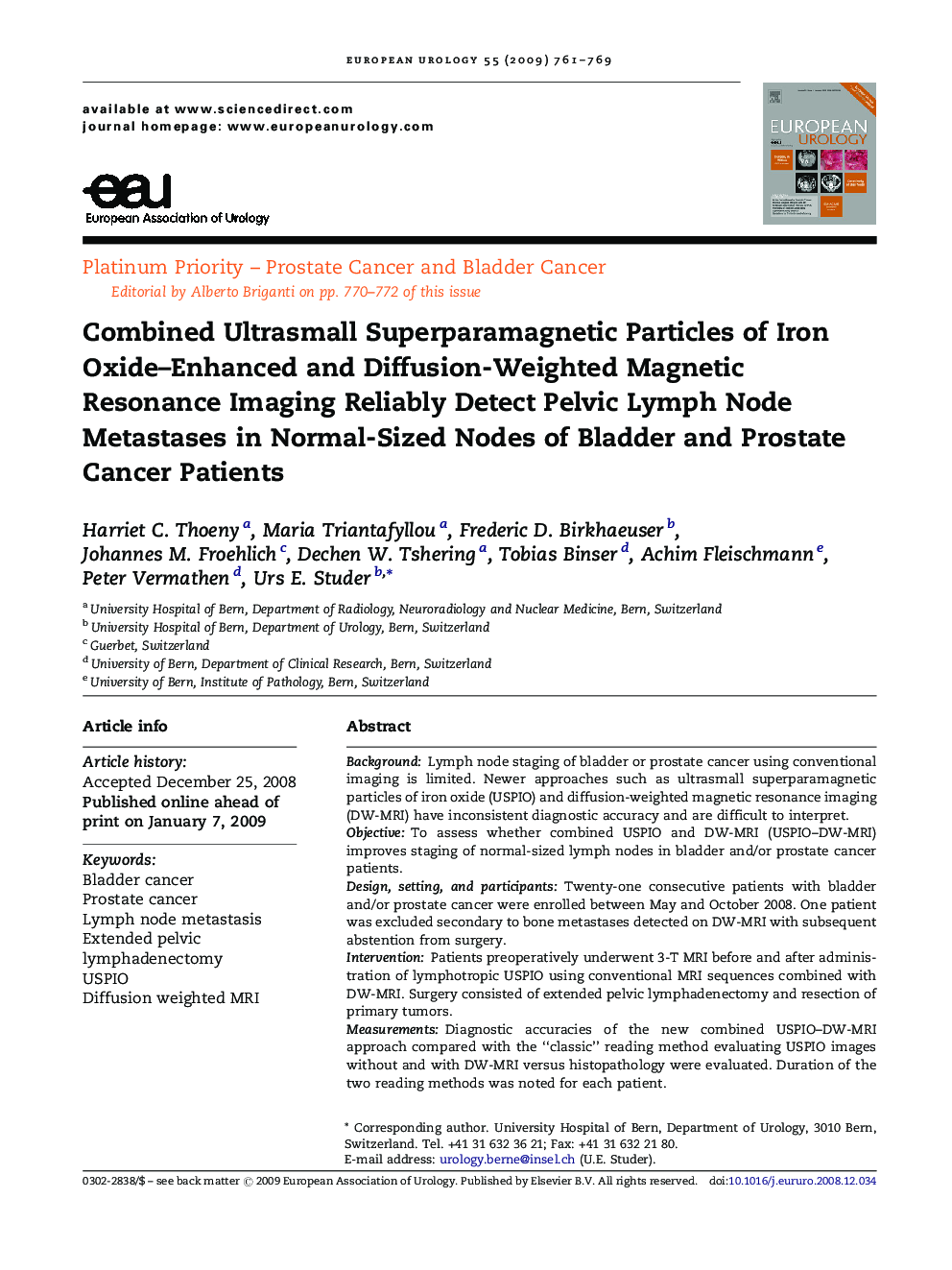| Article ID | Journal | Published Year | Pages | File Type |
|---|---|---|---|---|
| 3928399 | European Urology | 2009 | 9 Pages |
BackgroundLymph node staging of bladder or prostate cancer using conventional imaging is limited. Newer approaches such as ultrasmall superparamagnetic particles of iron oxide (USPIO) and diffusion-weighted magnetic resonance imaging (DW-MRI) have inconsistent diagnostic accuracy and are difficult to interpret.ObjectiveTo assess whether combined USPIO and DW-MRI (USPIO–DW-MRI) improves staging of normal-sized lymph nodes in bladder and/or prostate cancer patients.Design, setting, and participantsTwenty-one consecutive patients with bladder and/or prostate cancer were enrolled between May and October 2008. One patient was excluded secondary to bone metastases detected on DW-MRI with subsequent abstention from surgery.InterventionPatients preoperatively underwent 3-T MRI before and after administration of lymphotropic USPIO using conventional MRI sequences combined with DW-MRI. Surgery consisted of extended pelvic lymphadenectomy and resection of primary tumors.MeasurementsDiagnostic accuracies of the new combined USPIO–DW-MRI approach compared with the “classic” reading method evaluating USPIO images without and with DW-MRI versus histopathology were evaluated. Duration of the two reading methods was noted for each patient.Results and limitationsDiagnostic accuracy (90% per patient or per pelvic side) was comparable for the classic and the USPIO–DW-MRI reading method, while time of analysis with 80 min (range 45–180 min) for the classic and 13 min (range 5–90 min) for the USPIO–DW-MRI method was significantly shorter (p < 0.0001). Interobserver agreement (three blinded readers) was high with a kappa value of 0.75 and 0.84, respectively. Histopathological analysis showed metastases in 26 of 802 analyzed lymph nodes (3.2%). Of these, 24 nodes (92%) were correctly diagnosed as positive on USPIO–DW-MRI. In two patients, one micrometastasis each (1.0 × 0.2 mm; 0.7 × 0.4 mm) was missed in all imaging studies.ConclusionsUSPIO–DW-MRI is a fast and accurate method for detecting pelvic lymph node metastases, even in normal-sized nodes of bladder or prostate cancer patients.
